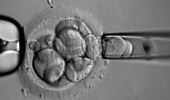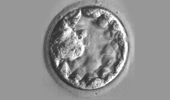Pre-Implantation Genetic Diagnosis (PGD)
Pre-implantation genetic diagnosis (PGD) is a technique which involves the genetic screening of embryos created through IVF or ICSI to detect hereditary genetic diseases. PGD can also be used to select the sex of a baby.
PGD improves the likelihood of a successful pregnancy. In addition to that, it can replace prenatal diagnostic techniques (eg amniocentesis, chorionic villus sampling) by helping in the decision whether to interrupt pregnancy or continue the process.
PGD is used to avoid the risk of:
- a child with genetic abnormalities
- miscarriages
- multiple pregnancies.
It is also indicated for women:
- with unexplained miscarriages,
- having failed several times with ART techniques
- whose age is more than 39 years and has a risk of aneuploidy.
Couples who are at risk of transmitting to their offspring a genetic disorder, such as:
- autosomal dominant
- sex chromosome
- autosomal recessive
- HLA compatibility;
can also benefit from Preimplantation Genetic Diagnosis.
PGD is performed as part of an IVF cycle.
The embryo on day 3 is controlled by 8-cells stage. One cell is removed from each embryo through a procedure called Embryo Biopsy. The cell is analyzed by the laboratory to determine which embryo is free of genetic abnormalities. Results will be available within 24 hours.
PGD is a reliable test, helping couples to have “a healthy baby”











